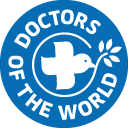Burkina Faso: A Complex Humanitarian Crisis
The situation in Burkina Faso is dire, complex, and in serious need of humanitarian aid from the global community. Since 2016, the country has entered an infernal spiral of violence. In this year, two military coups have taken place, further destabilizing the country and instigating violence. To add to the complexity of the situation, the military is in an armed conflict against jihadist militias that have been attacking in the north. In 2021, 1,315 security incidents targeting the civilian population and state institutions were recorded: attacks, kidnappings and massacres.
Conflict, famine, and mass-displacement are key issues to address when discussing the state of Burkina Faso. Since the conflict began 4 years ago, Burkina Faso remains one of the 3 fastest growing displacement crises in the world. 1 in 10 people in Burkina Faso have been forcibly displaced from their homes and the conflict has had a detrimental impact on the health sector, forcing 179 health centers to close, leaving more than 2 million people without access to health and nutritional care. Mass exodus and climate change have also resulted in thousands of crops being damaged and destroyed. In March 2022, it was estimated that 3.45 million will be severely food insecure and over 630,000 on the brink of famine. Along with food, access to clean water is also at risk, with 2.5 million struggling without it.
Doctors of the World Assistance in Sexual and Reproductive Health
In 2021, DotW:
- Screened 4,476 women,
- Treated 70 cases of precancerous lesions,
- Strengthened the dynamics of national alliances through the mobilization of more than 35 civil society organizations
In 2021, advocacy activities enabled:
- To revise the national strategic plan for the fight against cancer (2021-2025) by integrating the priority of the cervical cancer (CCU);
- The signing of Order No. 2021-072/MS/CAB on the creation, powers and operation of a technical group for the elimination of CCU in Burkina Faso;
- To update and have adopted the document of standards and guidelines for the management of CCU;
- To develop and have adopted an inter-ministerial order and an operational strategy on the introduction of vaccination of the virus responsible for CCU (the Human Papilloma Virus);
- Revise and adopt the National Strategic Framework for the fight against HIV/AIDS and STIs (2021-2025) by integrating the fight against CCU among HIV-positive women and sex workers (TDS);
- To strengthen the commitment of networks of civil society actors, press organs and “champion personalities” against the CCU in Burkina Faso.
Doctors of the World Emergency Clinic
In 2020, DotW established a humanitarian emergency program in Kongoussi, to help address the shortage of care that area experienced.
Since the launch of the activities, our teams have been able to set up:
– The deployment of mobile clinics for a free primary health care offer, including the prevention and management of Gender-based Violence (GBV), mental health and psychosocial support, in areas with high concentrations of displaced persons;
– Strengthening the capacities of existing health structures, in particular for the management of vital emergencies, cases of GBV and psychological distress as well as the strengthening of emergency response capacities (displacements of populations, epidemics, etc.);
– The strengthening of individual and community empowerment in terms of access to health rights.
In 2021, Doctors of the World:
Provided 103,674 medical consultations,
Treated 950 severely acute malnourished children.
Youth & Adolescent Health Rights
In the Baskuy health district in Ouagadougou, working with the Ministry of Health, health facilities and local organizations, DotW has established the “RESPECT for the health rights of adolescents and young people’ project in October 2021. This project promotes access to sexual and reproductive health care for adolescents and young people aged 10 to 24.
With the support of Doctors of the World, the various actors implement medical, community and advocacy activities aimed at improving access to care. They further ensure the dissemination of information on available health services and also focus on breaking down institutional and legal barriers that hinder adolescents and young people from fully enjoying their health-related rights.
Our intervention aims to achieve three objectives:
– The strengthening of health services, adapted to gender, inclusive and accountable
– Equitable use of sexual and reproductive health services, in particular by adolescents and young people
– Support for women’s/girls’ rights organizations and health authorities to promote policies and legal frameworks in the area of Sexual and Reproductive Health and Rights (SRHR)

